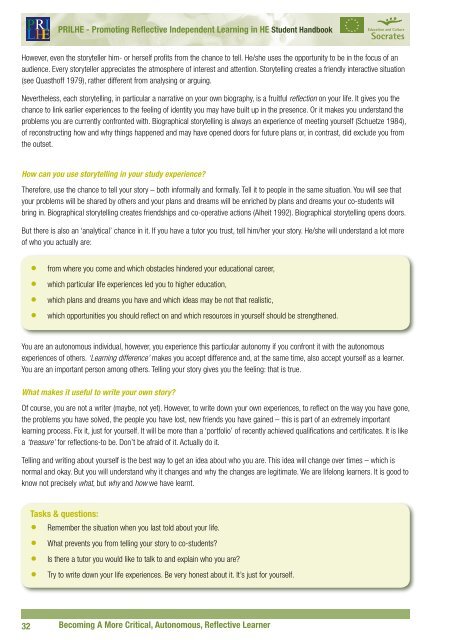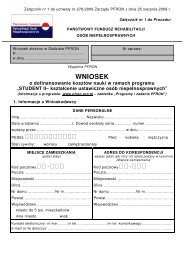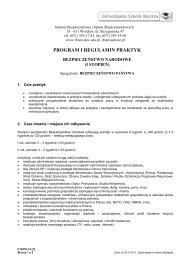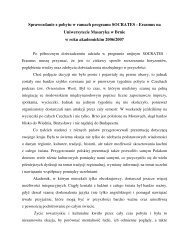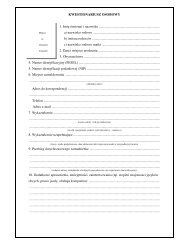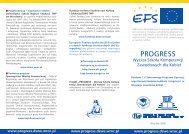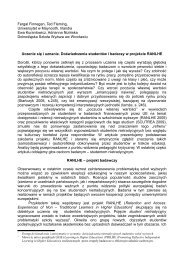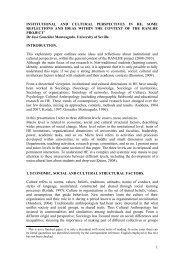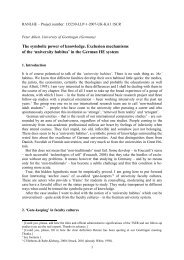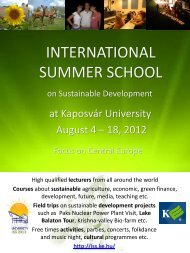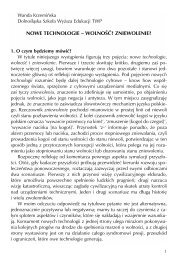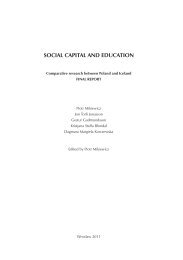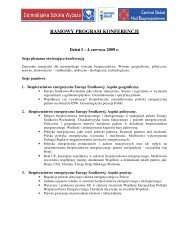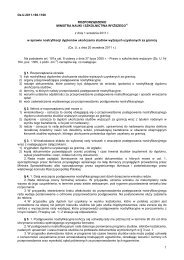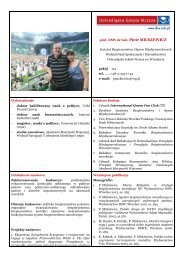Becoming A More Critical, Autonomous, Reflective Learner
Becoming A More Critical, Autonomous, Reflective Learner
Becoming A More Critical, Autonomous, Reflective Learner
You also want an ePaper? Increase the reach of your titles
YUMPU automatically turns print PDFs into web optimized ePapers that Google loves.
PRILHE - Promoting <strong>Reflective</strong> Independent Learning in HE Student HandbookHowever, even the storyteller him- or herself profits from the chance to tell. He/she uses the opportunity to be in the focus of anaudience. Every storyteller appreciates the atmosphere of interest and attention. Storytelling creates a friendly interactive situation(see Quasthoff 1979), rather different from analysing or arguing.Nevertheless, each storytelling, in particular a narrative on your own biography, is a fruitful reflection on your life. It gives you thechance to link earlier experiences to the feeling of identity you may have built up in the presence. Or it makes you understand theproblems you are currently confronted with. Biographical storytelling is always an experience of meeting yourself (Schuetze 1984),of reconstructing how and why things happened and may have opened doors for future plans or, in contrast, did exclude you fromthe outset.How can you use storytelling in your study experience?Therefore, use the chance to tell your story – both informally and formally. Tell it to people in the same situation. You will see thatyour problems will be shared by others and your plans and dreams will be enriched by plans and dreams your co-students willbring in. Biographical storytelling creates friendships and co-operative actions (Alheit 1992). Biographical storytelling opens doors.But there is also an ‘analytical’ chance in it. If you have a tutor you trust, tell him/her your story. He/she will understand a lot moreof who you actually are:• from where you come and which obstacles hindered your educational career,• which particular life experiences led you to higher education,• which plans and dreams you have and which ideas may be not that realistic,•which opportunities you should reflect on and which resources in yourself should be strengthened.You are an autonomous individual, however, you experience this particular autonomy if you confront it with the autonomousexperiences of others. ‘Learning difference’ makes you accept difference and, at the same time, also accept yourself as a learner.You are an important person among others. Telling your story gives you the feeling: that is true.What makes it useful to write your own story?Of course, you are not a writer (maybe, not yet). However, to write down your own experiences, to reflect on the way you have gone,the problems you have solved, the people you have lost, new friends you have gained – this is part of an extremely importantlearning process. Fix it, just for yourself. It will be more than a ‘portfolio’ of recently achieved qualifications and certificates. It is likea ‘treasure’ for reflections-to be. Don’t be afraid of it. Actually do it.Telling and writing about yourself is the best way to get an idea about who you are. This idea will change over times – which isnormal and okay. But you will understand why it changes and why the changes are legitimate. We are lifelong learners. It is good toknow not precisely what, but why and how we have learnt.Tasks & questions:••••Remember the situation when you last told about your life.What prevents you from telling your story to co-students?Is there a tutor you would like to talk to and explain who you are?Try to write down your life experiences. Be very honest about it. It’s just for yourself.32<strong>Becoming</strong> A <strong>More</strong> <strong>Critical</strong>, <strong>Autonomous</strong>, <strong>Reflective</strong> <strong>Learner</strong>


